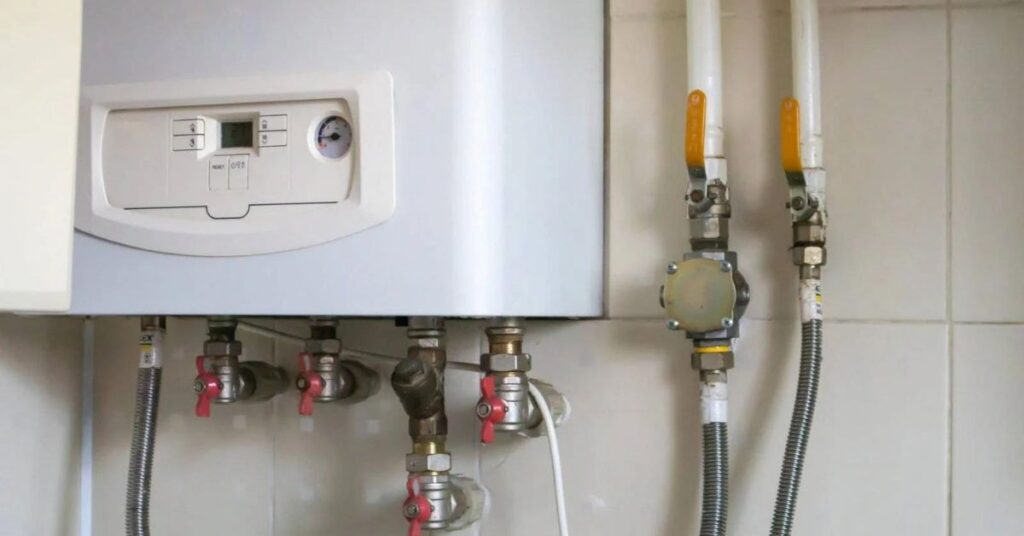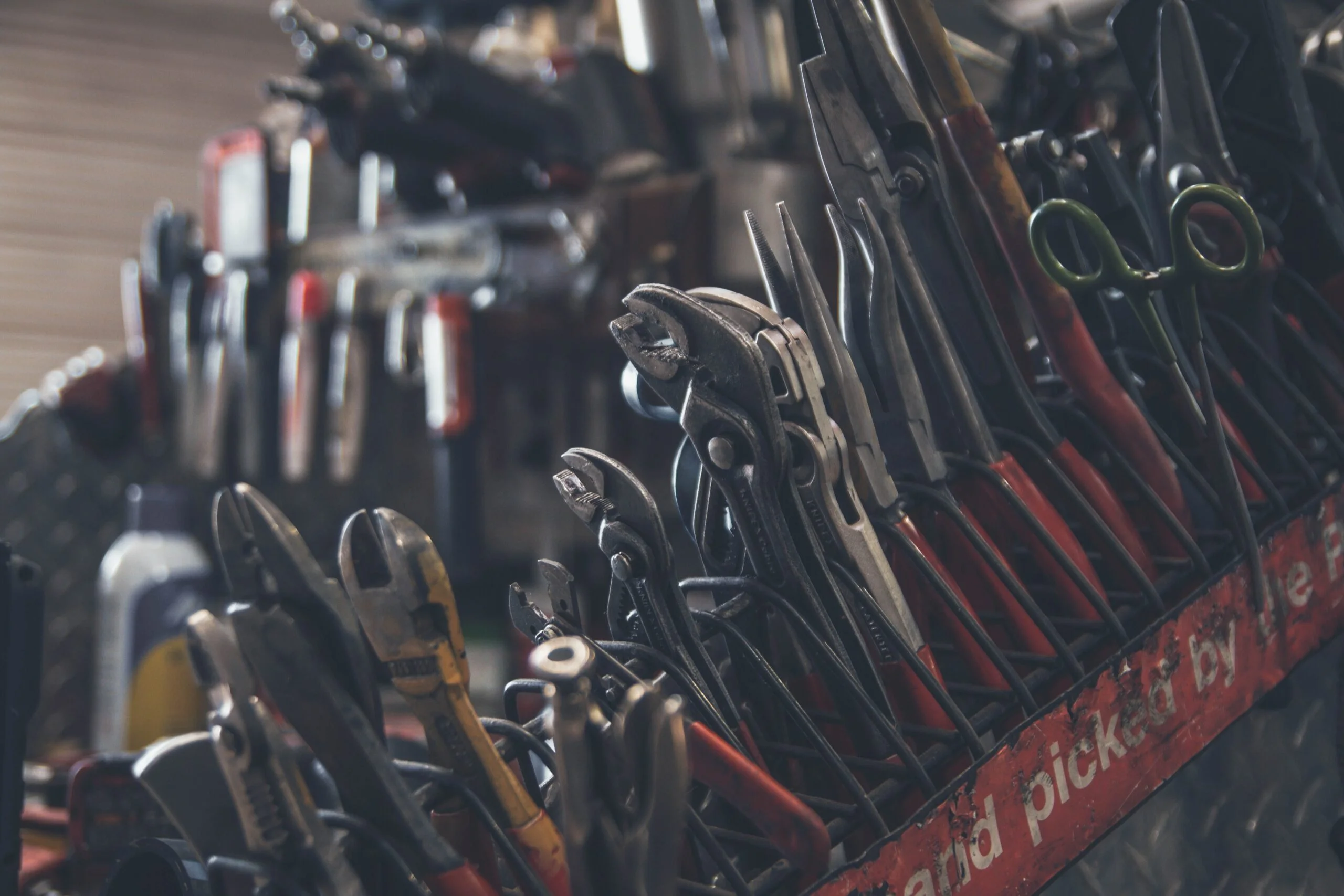Water heaters that keep breaking down can be frustrating and inconvenient for homeowners. This guide will explore the question: “Why water heater keeps tripping breaker?” It is essential to understand how your water heater works and identify common causes of breaker trips so you can troubleshoot effectively and prevent disruptions altogether. Find out what causes electrical overload, faulty heating elements, and short circuits to maintain a steady hot water supply.
How a Water Heater Works
Water heaters quietly provide hot water for showers and other household tasks behind the scenes. Let’s look at its inner workings to understand why breaker trips might occur.
1. Basics of Operation
Essentially, a water heater heats and stores water for on-demand consumption. In this process, a heating element, typically powered by electricity or gas, is used to heat the fluid. When water flows into the tank, the heating element warms it to the desired temperature, ensuring hot water when needed.
2. The Heating Element and Thermostat
The heating element and thermostat are at the heart of this operation. The heating element warms the water, while the thermostat keeps it consistent and safe. These components work harmoniously to provide a reliable source of hot water throughout your home.
3. Introduction to Electrical Components
In the context of breaker trips, it’s crucial to understand the electrical components of a water heater. A dedicated circuit powers the heating element, and any disruption in this electrical system can lead to the confusion of a tripped breaker.
Why Water Heater Keeps Tripping Breaker
It’s frustrating when your water heater trips the breaker, but understanding the cause is the key to fixing it. Let’s look deeper at what’s causing your water heater to trip the breaker:
1. Electrical Overload
Electrical overload occurs when the electricity demand exceeds the capacity of the electrical circuit. It can happen if multiple high-powered appliances are running simultaneously. As a safety measure, the breaker trips to prevent overheating and potential fire hazards. You can solve this by redistributing appliances on the same circuit or upgrading your electrical panel.
2. Faulty Heating Element
The heating element is a crucial component responsible for warming the water in your heater. A malfunctioning heating element can lead to breaker trips. Uneven water temperature, strange noises, or a lack of hot water are all signs of trouble. You can fix this problem by testing and replacing your water heater’s heating element.
3. Short Circuit
Electrical short circuits happen when hot and neutral wires come into direct contact, creating a low-resistance path for electricity. It can result in a sudden surge of power, causing the breaker to trip. Identifying signs of a short circuit, such as burnt smells or visible damage to wires, is crucial. Replacing or repairing damaged wiring may be necessary to fix it quickly.
4. High Resistance in the Circuit
High resistance can impede the normal flow of electricity, causing heat and tripping the breaker. This issue often stems from corroded or damaged wiring. Recognizing the signs, such as dimmed lights when the water heater’s on, is essential. You might have to replace damaged wiring or upgrade to a more robust circuit to fix high resistance.
Troubleshooting starts with understanding these common causes.
Troubleshooting and Solutions
After identifying common causes of a water heater tripping the breaker, let’s explore practical troubleshooting steps and solutions.
1. Electrical Overload
Start by assessing the overall load on the circuit if your water heater is tripping the breaker. Consider redistributing high-powered appliances to different circuits or staggering their usage to prevent a simultaneous heavy draw. In some cases, upgrading your electrical panel is an excellent long-term solution.
2. Faulty Heating Element
Check the continuity of a potentially faulty heating element with a multimeter. If the multimeter indicates no continuity, the heating element is likely the culprit. The solution involves replacing the defective heating element with a new one. Ensure you follow the directions in your water heater’s manual when removing and replacing the heating element.
3. Short Circuit
Identifying the signs of a short circuit is crucial to prevent the breaker from tripping. Inspect the wiring for visible damage, burnt smells, or charring. Additionally, check for loose connections. If you detect any issues, the solution involves repairing or replacing the damaged wiring and ensuring all connections are tight. You may need professional assistance if the problem persists.
4. High Resistance in the Circuit
Look for signs of high resistance, such as corroded or damaged wiring that looks discolored or frayed. To address this issue, replace any damaged wiring and make sure all connections are secure. It might be necessary to upgrade to a heavier gauge wire or install a dedicated circuit for a more permanent fix.
5. Professional Help
It’s best to seek the help of a licensed professional plumber specializing in water heaters if your troubleshooting efforts don’t resolve the issue. A professional can assess your water heater, identify the root cause, and implement the necessary repairs or replacements.
It is how you can fix your broken water heater in Dallas, Texas. The best thing you can do is to hire a professional plumber.
Read More: How to Research Your Water Heater Specialist
Prevention Tips
You must proactively prevent frequent breaker trips and ensure your water heater runs smoothly. Regular inspections are crucial in early identification of signs of wear, corrosion, or damage. During these checks, watch out for leaks, strange noises, and visual signs of electrical problems.
To prevent excessive wear on heating elements, ensure your thermostat setting is within the recommended safe and efficient range.
Periodically flushing the tank helps eliminate sediment buildup, enhancing your water heater’s overall efficiency and lifespan. Professional maintenance ensures a thorough inspection and cleaning of components, addressing potential problems before they escalate.
Conclusion
You’ve learned common causes, effective troubleshooting, and preventive measures for water heaters that trip the breaker. Regular maintenance, eyeing for signs of wear, and promptly addressing electrical issues can keep your hot water flowing.
Consult professionals if problems persist. A well-maintained water heater not only keeps you comfortable but also ensures its longevity. Keep your water heater safe, stay proactive, and enjoy the constant warmth.


